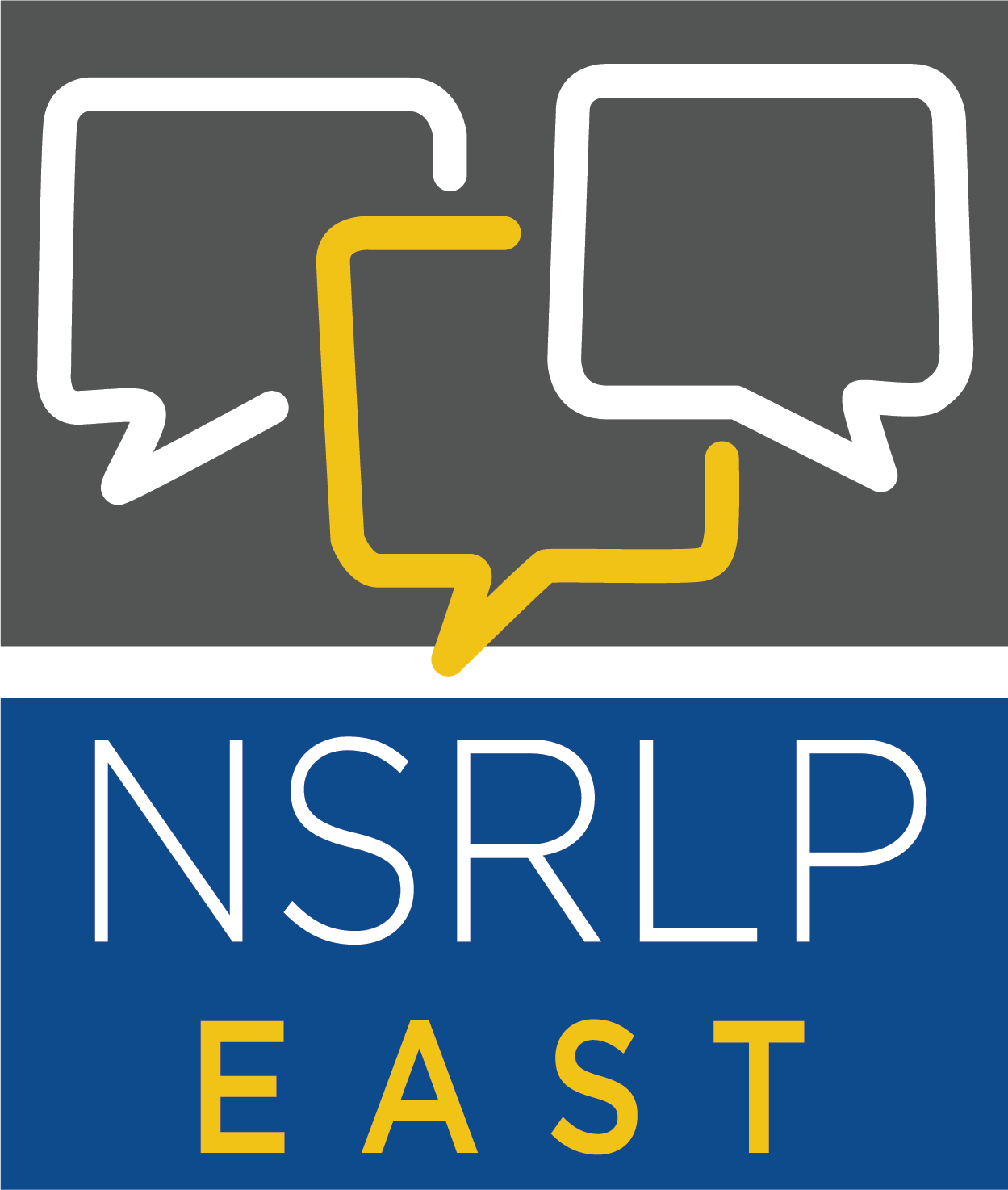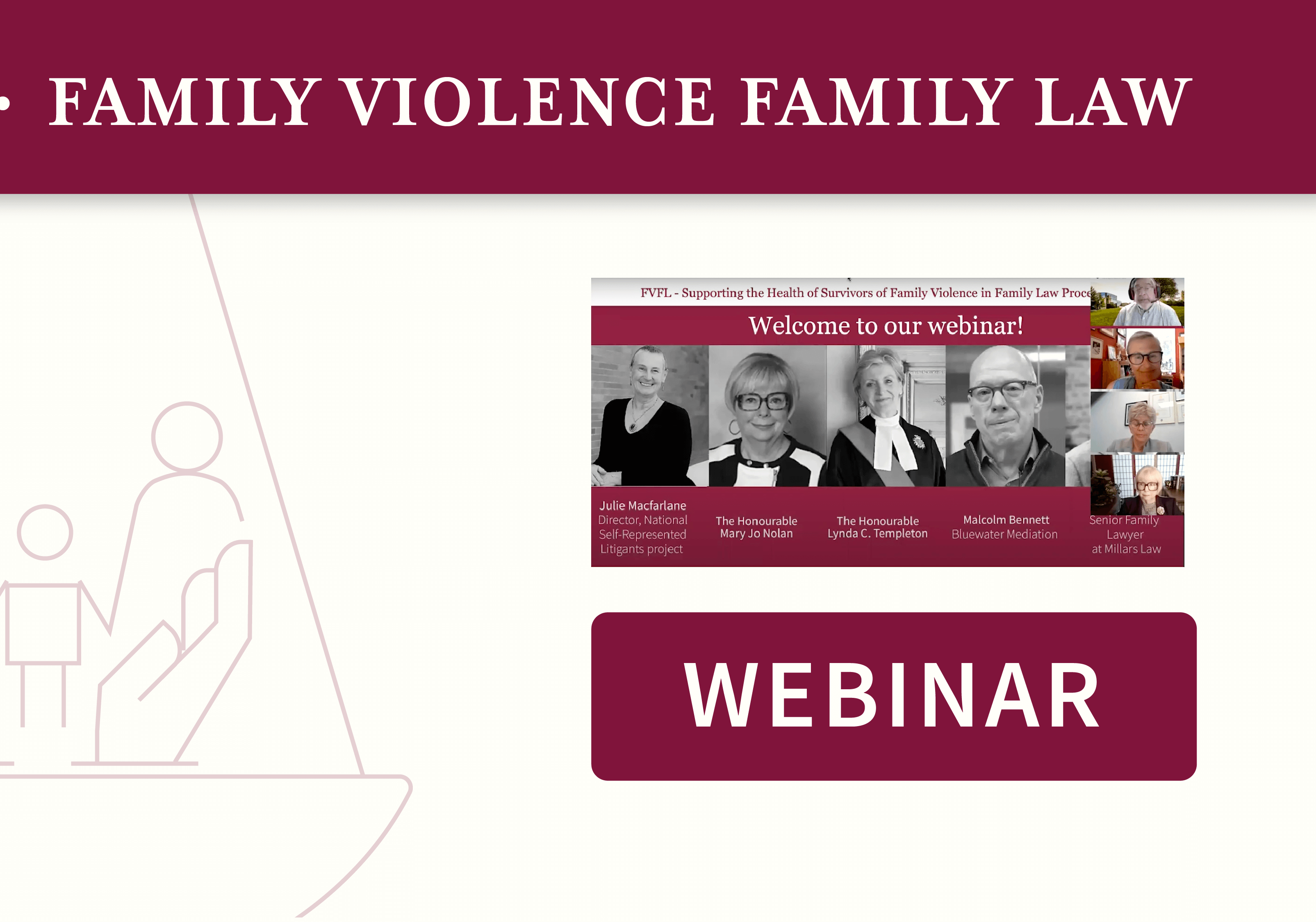Many self-represented litigants (SRLs) appear in family court. A webinar from the Family Violence Family Law Project discusses the unique challenges faced by SRLs in family court when there is violence in the home. In this blog post, we highlight some of the main takeaways from the webinar. The full webinar recording can be accessed here.
The webinar features an experienced panel including Dr. Julie Macfarlane, The Honourable Mary Jo Nolan, The Honourable Lynda C. Templeton, Mediator Malcom Bennett and Senior Family Lawyer Julie Lee.
According to the video, in family court in Canada, more than 50% of litigants are self-represented (closer to 80% in urban centers). Dr. Julie Macfarlane with the National Self-Represented Litigants Project (NSRLP) shares that it is more common now to be on your own than with a lawyer in family court, the primary reason being lack of funds to pay for legal services. Many people begin with a lawyer but run out of money during the litigation process. Additionally, outcomes for SRLs can often be worse than for represented litigants.
SRLs in family court are faced with many challenges, which can be further exacerbated in cases of family violence. For example:
- Difficulty completing documentation and presenting evidence e.g., court forms, producing relevant evidence
- Safety in the courthouse: both in the person and during virtual hearings
- Challenges in the courtroom, such as facing someone who has been abusive
- Personal cross-examination: being questioned by the person who has been abusive/violent
- Negotiating an outcome: SRLs may be anxious about being bullied into an agreement
- Ongoing litigation and coercive control by the person who has been abusive
The NSRLP also looked at family cases and found examples of gendered assumptions made by judges in relation to SRLs. Cases showed differences in the characteristics ascribed to men vs. women. In some cases, men were described with terms relating to aggression, forcefulness, and bullying, whereas women in some cases were characterized as “schemers,” “attention seeking and dramatic” and “behaving emotionally.”
The webinar panel recommended several potential areas for improvement:
- Allow McKenzie friends to sit beside SRLs during trial
- Have other options to litigation to resolve family issues
- An initiative of Dr. Macfarlane’s at the University of Windsor was highlighted where law students assist SRLs to complete court forms
- Prohibit SRLs in family court from cross-examining the other party in cases of family violence and instead have a court appointed intermediary perform the cross-examination
- Judges could provide basic trial information to assist SRLs
- Family lawyers can be more transparent and accessible in their process to create trust between them and their clients
- Screening for domestic violence and power imbalances throughout any mediation process
- Make the litigation system trauma-sensitive and trauma-informed
Since the onset of Covid-19, SRLs have been faced with additional difficulties. The webinar highlights some of the challenges including accessing technology and preparing and submitting electronic documents. Possible solutions suggested were having computer booths in court houses, using counsel rooms in court as zoom rooms for SRLs, and ensuring any case management software is easily accessible by SRLs to complete and upload documents.
Watch the full webinar on the Family Violence Family Law project website here.

